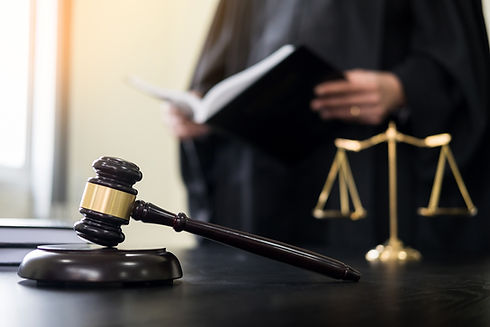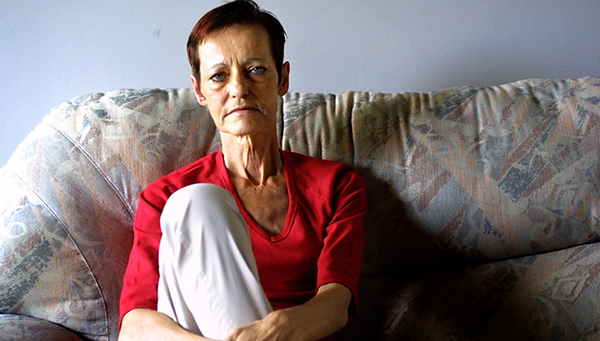
Pre-Trial Preparation
The significance of pre-trial preparations
Preparation is the key to successful trial practice. Contrary to what you may see on television, no part of trying a case is extemporaneous. From opening statements, to cross-examination, to the objections one makes, to the impassioned closing argument attacking the credibility of an adverse witness, everything that is done and said in the courtroom is planned in advance.
In fact, apart from the preparation that an attorney has to do prior to a trial, it is considered beneficial even for expert witnesses to know about the legal issues involved in the case before the trial. Expert witnesses are often recruited by the legal professionals such as the attorney and have the ability to testify more knowledge of a situation or topic as they are experts in certain topics and have specialized knowledge about it. In matters such as mental health or other areas such as social, experimental, cognitive, or developmental, psychologists are called upon to testify. Despite claims that expert witnesses perform better if they are unfamiliar with legal problems outside of their own professional scopes, Simpson discounted such a hypothesis. He emphasises that understanding the specific legal requirements in a given instance provides each eununation and report a distinct purpose. He goes on to add that the more a psychologist learns about the law and the more information he acquires about a given case, the better he can execute his duty in court and so better serve the interests of justice. In his article, Daugherty (1960) discusses the significance of pre-trial preparation, claiming that it improves the competence of the court and attorneys, therefore speeding up the process of justice making. Similarly, Genzberger (1954) asserts that a well-prepared case is half won, and discusses how pre-trial preparation may benefit attorneys.

For the preparation of a case for court, the best knowledge about the client, the brief, and the legal concerns that may be collected is essential. Preparing for a case before the trial is critical for several reasons:
-
It enables the psychologist to anticipate probable queries and prepare an answer in advance.
-
It helps the psychologist to evaluate the different alternative interpretations of the client's conduct or test findings that the opposite party may have.
-
It offers a detailed review of prospective areas of psychological investigation and testing that the client's lawyers may have overlooked.
-
Psychologists can assist the attorney in selecting the appropriate inquiries.
-
They can assist them in asking the greatest questions possible.
-
They can supply them with pertinent facts, such as clarifying any misconceptions, supplementing information already on hand, and explaining proof in further depth.
-
Lastly, reveal what is known about the opposing side's psychologist.

How is the pre-trial preparation carried out?

A thorough understanding of the client, brief, and legal concerns is required for case preparation. If a psychologist is called to testify in court as an expert witness, he or she should obtain copies of all relevant documents, including charges, police statements, defendant statements, witness statements, medical evidence, and reports from the prison medical officer and prison psychologist, if they are available.
It is best for the expert witness to confer with the attorney ahead of time. It is recommended that the psychologist inform the lawyer about the kind of inquiries that will allow him to present the evidence in the best possible light. The selection of appropriate questions can help to bolster the psychologist's argument. This will allow the psychologist to outline the major themes he wishes to explore as well as establish from the advocate the type of attack the opposing party would employ. Apart from establishing the presenting style, the consultation should include a fact-gathering session with both the advocate and the expert.
McCabe Case
Rolah McCabe filed a complaint against British American Tobacco (BAT) Australia in the Supreme Court of Victoria in late 2001. Rolah sued BAT, claiming that company was negligent in the production and marketing of cigarettes, which caused her lung cancer. She sought restitution. Rolah contended that BAT was aware that cigarettes were dangerous and addictive to one's health; that it took no rational steps to reduce the risk of addiction or the health implications; that it targeted children in its advertising; and that it overlooked or openly denigrated research findings indicating the health consequences of smoking. The complainant filed a motion to strike the defence on the grounds that BAT and its predecessor firms destroyed important papers, making a fair trial difficult for the plaintiff, and that BAT failed to comply with a discovery order. The jury ruled in Rolah's favour and awarded him $700,000 in damages. BAT filed an appeal against the jury's ruling, which was unanimously granted by the Court. The Court reversed the previous verdict in Rolah's favour and remanded the matter to trial. The suppression of evidence in this case, which was eventually retrieved, prompted pre-trial preparations in order to save the court's time.This case demonstrated the significance of pre-trial preparations. It is also the foundation for having pre-trial preparations in minor drug cases.

Pre-trial preparation in India
In India, under-trial detainees constitute a sizable 67.6 percent of the jail population. In 2016, 3927 undertrials had spent more than 5 years in prison and were expecting their cases to be completed. In India, attorneys and police officers play a far more important role in pre-trial preparation than forensic psychologists. In the presence of a defendant, or a prosecutor or judicial officer with less authority than a defendant, parties to the case and their attorneys have a pre-trial consultation until the jury begins in the presence of a defendant, or a prosecutor or judicial officer with less authority than a defendant
The police gather evidence, arrest and present the accused in front of the judge, and obtain police custody or court remand orders. An FIR is filed by the cops. The FIR is simply the particular information provided to police while they are investigating a crime. Police acquire pertinent objects, conduct searches and arrests, seize suspects, document their statements and confessions, organise parades for test identification, obtain technical reports and views from specialists, and build a case log of all of them for each case investigated.
The advocate thoroughly investigates the facts, documentation, and legal position. He talks through the issues that the court has framed for trial, as well as the oral and documentary evidence that will be presented on their behalf. He does extensive research in order to anticipate the evidence that will be presented by the other party in order to prepare for cross-examination.
Audio Visual Material
Are you someone who learns better by watching a video?
Then this blog post is for you!
Are you interested in knowing about pre-trial preparation?
If yes, refer to the links below. These will help you in gaining a little insight into the topic:
If this topic interests you even further and you would want to gain
in-depth information about the same. No worries! We have got your back.
You can refer to the link mentioned below:
HAPPY EXPLORATION!
Glimpse at Exclusive Documents
If you've read our previous blog posts, you'll know that when an expert witness is called to testify, the attorney should provide the expert with copies of all relevant documents, such as charges, police statements, defendant statements, witness statements, medical evidence, and reports from the prison medical officer and prison psychologist, if they're available. The following are certain images of relevant documents for better understanding:
Note: In case you missed some of our blog posts, we believe it would be a good idea to go through them once!
Charge Sheet
Medical Report
Charge sheets:


Defendant Statement
Medical Report:

-
Gudjonsson, G. H., & Haward, L. (1998). Forensic Psychology: A Guide to Practice (1st ed.). Routledge.
-
Daugherty, F. (1960). The Importance of Pre-Trial Preparation. Student Law. J., 6, 13.
-
Genzberger, E. N. (1954). Pretrial Preparation: Some Personal Observations. American Bar Association Journal, 1077-1080.
-
Garg, R. (2020, August 25). The concept of pre-trial in the criminal procedure. IPleaders. https://blog.ipleaders.in/the-concept-of-pre-trial-in-the-criminal-procedure/
-
The McCabe case. (n.d.). McCabe Centre for Law and Cancer. https://www.mccabecentre.org/about/the-mccabe-case
References


